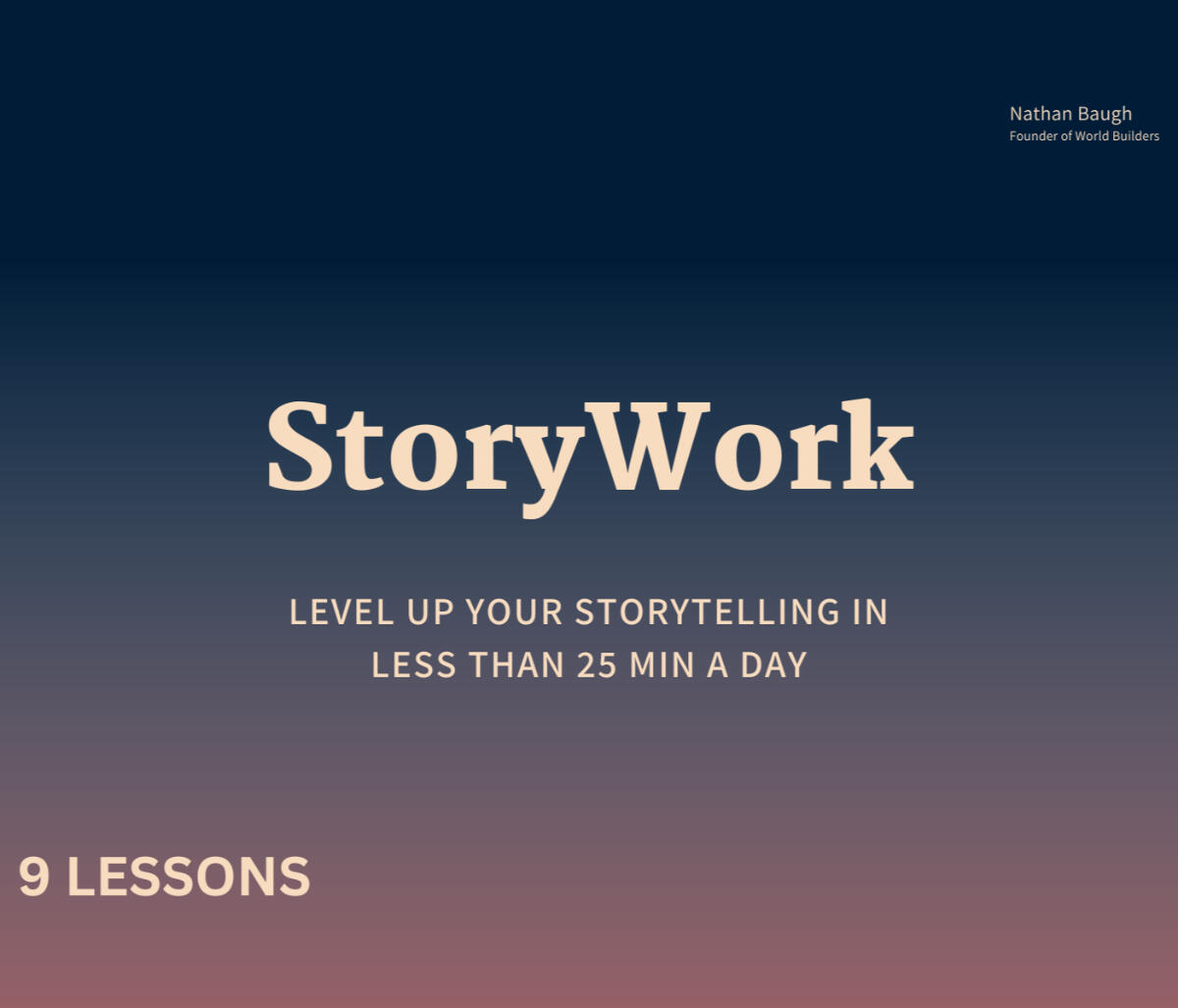- World Builders
- Posts
- The Show About Nothing
The Show About Nothing
Seinfeld and Tarantino teach us about writing and taking the hard way
Hey — Nathan here.
I changed up the format this week. Let me know what you think. If you enjoy it, I’ll do more newsletters like this.
Today’s hook is one of the most famous opening lines ever (reply with your best guess):
“It is a truth universally acknowledged, that a single man in possession of a good fortune, must be in want of a wife.”
Last week’s answer: Where The Crawdads Sing

Seinfeld burns McKinsey: Before going all in on digital writing, I took a two-year foray into the world of consulting. Needless to say, this HBR interview with Jerry Seinfeld had me rolling.

But I want to focus on that last paragraph. “The right way is the hard way. The show was successful because I micromanaged it — every word, every line, every take, every edit, every casting.”
Getting details wrong is a guaranteed way to remove your audience from your story. Suddenly, instead of paying attention to the next joke, they’re wondering why that scene felt out of place. Two takeaways:
Remove details your audience doesn’t need
Spend that extra minute to get the small details they do need right
Seinfeld’s philosophy reminds me of the creators of South Park. Each week, they wrote the script, animated it, and edited it within five days. Then they did it again the next week. That’s not normal in TV. Usually, episodes are planned months in advance and never touched again.
Stories need to resonate with your audience. By taking the hard way, the South Park team unlocked culture in a way other shows couldn’t. If something big happened Monday, it’d be in that week’s South Park.
What a way to connect with your audience. To elevate your story.
One writing tip from Quentin Tarantino: Depending on the YouTube video you watch, Tarantino either has 10, 13 or sometimes even 20 tips for writing. But here’s my favorite:
Develop your own writing process that makes you happy.
There’s no one way to write, be creative, or tell a story. JK Rowling uses outlines while Stephen King writes to find his story. Maya Angelou wrote in the morning while Brandon Sanderson writes best at night.
These are masters at their craft. Yet they do it differently. The one habit common across the board? Consistency.
So find the process that helps you be consistent.
PS: Here’s the best YouTube video I found with curated tips from Tarantino.
Voice Over Everything: I spoke with two NYTimes bestselling authors this week, Andrea Bartz and Mark Sullivan (more to come). They’re in completely different genres. One writes thrillers. The other writes historical fiction. But they’re both obsessed with voice.
With each question, they came back to voice. Do their characters sound unique? Is the narrator compelling? If one of their fans read the book without knowing the author, could they guess who wrote it?
That last question is one I’m focusing on, and want to challenge you to focus on:
If someone reads a tweet from you, sees a video from your brand, or listens to your podcast, would your voice — your style — be enough for them to know who created it?
If so, you nailed your voice.
PS: Keep an eye on the Everybody Pulls The Tarp podcast for more on these convos.
Have an awesome weekend,
— Nathan
What'd you think of today's newsletter? |

A message from... Me!
The interest in this tweet blew me away...
One way to become a better storyteller:
Take your two favorite authors. I recommend one non-fiction and one fiction.
Copy, word for word, their best work. Do it by hand.
I chose Paul Kalanithi and Neil Gaiman.
It’s the single exercise that improved my writing the most.
— Nathan Baugh 🗺️ (@nathanbaugh27)
3:06 PM • Jan 5, 2023
In my experience, there are two ways to get good at storytelling:
Study the greats (what this newsletter is for)
Practice, practice, practice
I do a lot of practice through StoryWork.
And so many of you liked, commented, and sent me DMs about the practice I decided to turn it into a guided course for you.
Check it out:

Storyteller’s Finds
A few other gems I came across this week…
📜 Read of the week: The Cup of Coffee Theory of AI
🎧 Listen of the week: James Clear discusses one of my favorite ideas, the stories we tell ourselves on this podcast
🔑 Story of the week: Chatting with Mark Sullivan made me want to re-read his 2017 hit Beneath A Scarlet Sky
💎 Gem of the week: Steve Jobs prank calling a Starbucks on stage in front of 4,000 people shows the power of humor in storytelling

When you’re ready to go deeper, here are two ways I can help:
If you want a practical way to improve your writing and storytelling in less than 30 minutes a day, check out StoryWork (50+ students).
Promote your product to 50,000+ readers by sponsoring this newsletter (booked out 2 months).
Speaking of style…

